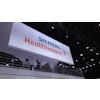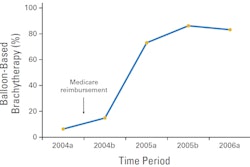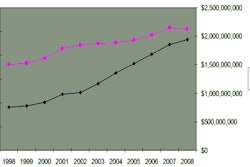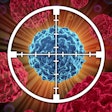The U.S. Nuclear Regulatory Commission (NRC) last week issued sanctions against the radiation oncologist allegedly responsible for nearly 100 botched prostate brachytherapy procedures performed between 2002 and 2008 at the Veterans Affairs Medical Center (VAMC) in Philadelphia.
The agency also issued a less severe sanction to the medical physicist who failed to report what he saw happening.
The sanctions are the latest actions taken by the NRC in response to what it reported as an unprecedented number of medical errors identified at the VA hospital. They represent the first such orders to physicians and medical physicists to ensure that activities with NRC-regulated nuclear materials are conducted in a safe manner, according to an agency spokesperson. The sanctions follow a $227,500 fine the agency issued in March 2010, one of the largest fines ever made by the NRC, for eight violations of its regulations.
The NRC actions are associated with an extensive investigation the agency conducted into the incorrect placement of iodine-125 brachytherapy seeds. The treatment was for prostate cancer diagnosed in military veterans at the Philadelphia VAMC from February 2002, when the prostate brachytherapy program began, until June 2008, when the program was shut down. Out of 116 procedures performed, 97 were executed incorrectly.
The NRC first learned of some of the problems in May 2008. The public became aware of the issues at multiple VA hospitals when the New York Times published the first in a series of articles on radiation therapy safety errors by investigative reporter Walt Bogdanich in August 2009. The articles triggered a congressional investigation, hearings by the U.S. Food and Drug Administration (FDA), and corrective actions undertaken by the U.S. Department of Veterans Affairs.
The VA contended that the NRC's assessment was overblown, and that only 19 procedures had been incorrectly performed. However, it paid the NRC fine in full in April 2010 and the prostate brachytherapy program at the Philadelphia VAMC remains suspended.
Details of the sanctions
Roy Zimmerman, director of the NRC's office of enforcement, issued an order on February 22 prohibiting Gary Kao, MD, PhD, an assistant professor of radiation oncology at the University of Pennsylvania School of Medicine, from engaging in any involvement in NRC-licensed activities in the interest of public health and safety. Kao is required to "provide the NRC with reasonable assurance that he can safely use radioactive material in accordance with NRC requirements, and that he can correctly identify and report medical events," for the ban to be lifted.
Specifically, Kao is required to complete specialized training regarding medical events and the importance of reporting issues of noncompliance and identifying corrective action. He will be required to document his understanding of the definition of a medical event, along with a successful demonstration of the ability to correctly identify and report medical events. He will also be required to document the corrective actions to be taken if he becomes involved in the future with noncompliance for NRC requirements.
Kao currently heads a transactional and basic research laboratory that studies prostate, breast, and brain tumors at the university's Perelman Center for Advanced Medicine. He has been one of four professors leading research to study the acute effects of space radiation as part of a five-year, $10 million grant awarded to the university in 2008.
Based on the findings of an onsite inspection conducted in May and June 2008, the VA National Health Physics Program (NHPP) concluded that Kao was aware of cases in which less than the full brachytherapy dose was administered to patients, and of other cases of seeds being implanted outside the prostate. The NHPP determined that Kao had adequate clinical and technical knowledge of patient circumstances surrounding the medical events, but he did not report the circumstances to the Philadelphia VAMC's radiation safety officer.
In addition, Kao did not perform post-treatment dose verification for at least 16 of his patients due to computer system interface problems that existed for a year, from December 2006 through November 2007. Even after the computer interface problems were resolved, post-treatment plans were not completed for seven patients until December 2007.
Sanctions against medical physicist
In addition to the sanctions against Kao, the NRC ordered Gregory Desobry, PhD, who served as the medical physicist for more than 90% of the permanent prostate implants at the facility, to notify the NRC when he is next employed as a medical physicist involved in similar NRC-licensed activities. Desobry is ordered to verify his understanding of medical events, the role and responsibility of the medical physicist regarding medical events, and the steps needed to identify and report these events to the NRC.
Desobry told the NRC that he had never received training as to what constituted a medical event, and that he was unaware of its reporting requirements. Desobry received board certification as a medical physicist by the American Board of Radiology in 1989. He was employed as a clinical physicist by the University of Pennsylvania Health System from November 1998 through December 2009.



















